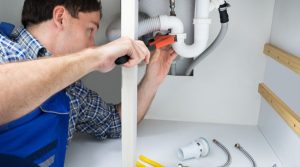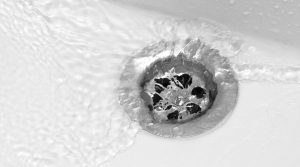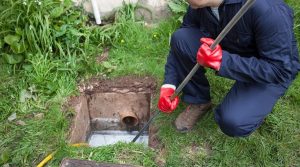Key Takeaways
- Corrosion Indicators: Rust-colored water, rusted valves, and leaks are primary signs of water heater corrosion.
- Preventive Measures: Regular maintenance, including annual inspections and sediment flushing, can significantly reduce corrosion risks.
- Professional Assistance: Consulting a qualified plumber ensures accurate diagnosis and effective solutions for water heater issues.
Understanding Water Heater Corrosion
Water heaters are essential for daily comfort, providing hot water for various household needs. However, these appliances can develop issues over time due to corrosion—a natural process where metals deteriorate when exposed to water and oxygen. Recognizing the signs of corrosion and implementing preventive measures can extend the lifespan of your water heater and maintain its efficiency.
Signs of Corrosion in Your Water Heater
- Rust-Colored Water: If your hot water appears brown, orange, or red, it indicates rust particles from the tank contaminating the water supply.
- Rusted Valves: Visible rust on the water inlet or pressure relief valves suggests internal corrosion, necessitating prompt attention.
- Leaks: Water collecting around the heater’s base or damp spots on the floor can signify leaks caused by corrosion-induced tank damage.
- Reduced Water Pressure: A noticeable decrease in water pressure may result from sediment buildup due to corrosion, obstructing water flow.
Causes of Corrosion
- Sediment Accumulation: Minerals in hard water can land near the tank’s bottom, resulting in corrosion over time.
- Anode Rod Depletion: The anode rod protects the tank from corrosion. If it deteriorates, the tank becomes more susceptible to rust.
- Electrolysis: Contact between metals, such as copper and steel, can create electrochemical reactions that accelerate corrosion.
Preventive Measures
- Regular Maintenance: To find and fix such problems early, schedule yearly inspections with a certified plumber.
- Flushing the Tank: Draining the tank annually removes sediment buildup, enhancing efficiency and reducing corrosion risk.
- Anode Rod Replacement: Inspect and replace the anode rod every 3-5 years to ensure it continues to protect the tank.
- Water Softening: Installing a water softener can reduce mineral content, decreasing sediment buildup and corrosion.
- Proper Installation: Ensure dielectric unions are used when connecting dissimilar metals to prevent electrolysis-induced corrosion.
When to Replace Your Water Heater
Suppose your water heater exhibits multiple signs of corrosion, such as persistent leaks, significant rust discoloration, or frequent repairs. In that case, it may be more cost-effective to replace the unit rather than continue maintenance. A new water heater can provide improved efficiency and reliability.
Frequently Asked Questions (FAQs)
- How often should I flush my water heater to prevent corrosion?
Flustering your water heater annually is recommended to remove sediment buildup and reduce corrosion risk.
- Can I replace the anode rod myself?
While it’s possible for experienced DIYers, it’s advisable should get advice from a qualified plumber to guarantee correct installation and prevent possible harm.
- What are dielectric unions, and why are they important?
Dielectric unions are fittings that prevent electrolysis between dissimilar metals, such as copper and steel, thereby reducing corrosion at connection points.
- How can I tell if my water heater is too old and needs replacement?
If your water heater is over 10 years old and showing signs of corrosion or frequent issues, it may be time to consider a replacement.
- Is hard water the leading cause of corrosion in water heaters?
Yes, hard water contributes significantly to sediment buildup and corrosion. This problem can be lessened by installing a water softener.
- What should I do if I notice a leak around my water heater?
Immediately turn off the power and water supply to the heater and have a licensed plumber assess it and repair the leak.
- Can corrosion in a water heater be repaired, or is replacement necessary?
Minor corrosion issues can often be repaired, but extensive damage may require a complete replacement to ensure safety and efficiency.
- How can I prevent corrosion if I have a tankless water heater? Regular maintenance, including descaling and annual inspections, is essential to prevent corrosion in tankless water heaters.
- Are there specific signs of corrosion in tankless water heaters ? Yes, signs include reduced water flow, inconsistent water temperature, and error codes indicating heating element issues.
- What are the advantages of routine maintenance for water heaters? Frequent upkeep increases energy efficiency, prolongs the life of your water heater, and reduces the likelihood of unexpected breakdowns.
By staying vigilant and proactive with maintenance, You can make sure your water heater lasts and works well. longer, providing reliable hot water for your household needs.
Plumbing Services
Whether you need a faucet replacement, plumbing repairs, or sewer and drain cleaning, BJC Plumbers is here to help throughout Jersey City and the surrounding areas. We offer 24/7 service at affordable rates, backed by our expertise and resources to quickly and effectively resolve your plumbing issues.







